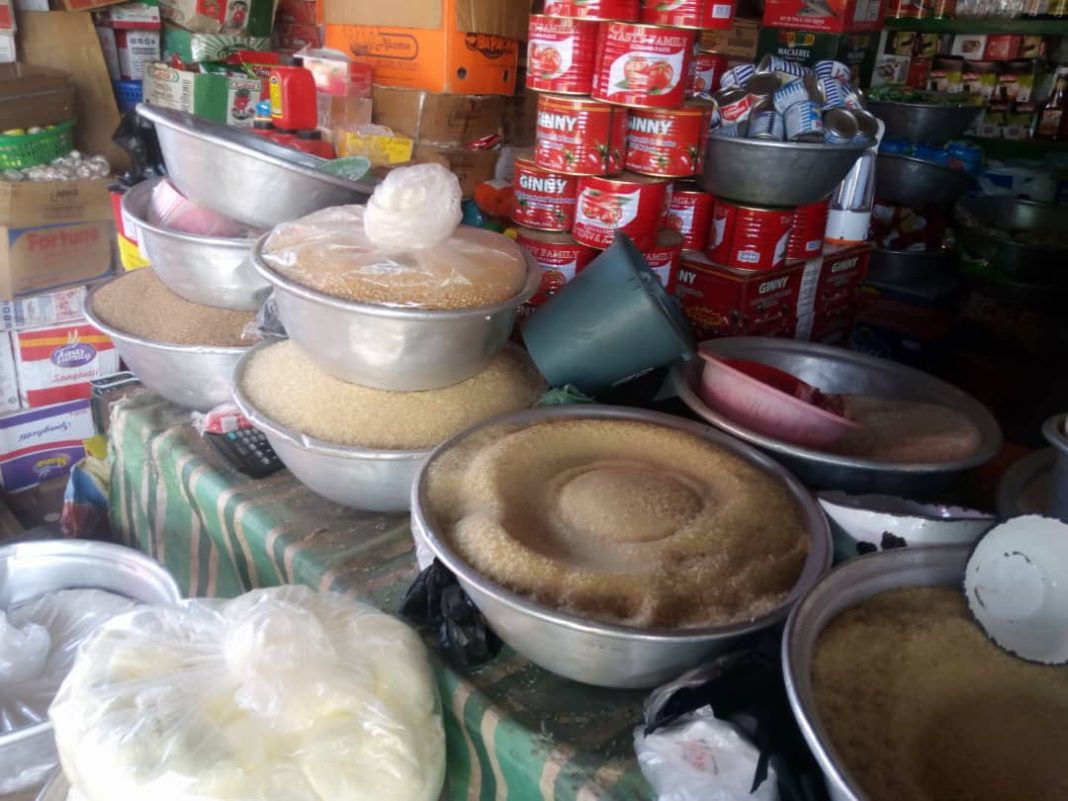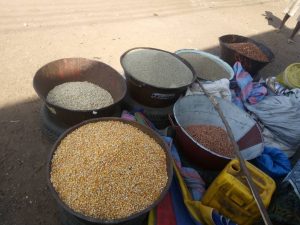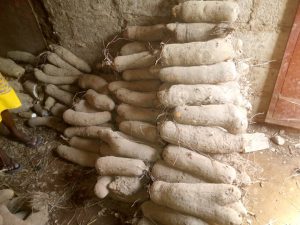Market women in the Bolgatanga municipality have impugned the claim made by the food and agriculture minister, Dr. Owusu Afriyie Akoto that food prices have not gone up. According to the women, there has been an outrageous increase in prices of staples on the market in recent times, with most apportioning the blame on high fuel prices and depreciation of the cedis.
The minister, while speaking at a ceremony to welcome the new board of Irrigation Company Of the Upper Regions (ICOUR) on Monday, November 15, 2021 strongly shot down claims that prices of food products were increasing saying statistics available to his outfit do not support the claims.
But A1 Radio’s visit to the Bolgatanga Central Market revealed that prices of food items including rice, millet, maize, cooking oil, yam and vegetables, among others had recorded sharp increases; thereby contrasting the minister’s claim.
The traders say a bowl of groundnuts, which used to be purchased for 10ghc, now has a price of 20ghc. They again said, a sack of old maize is sold at three hundred cedis while newly harvested maize is sold at GHC 160. Prices of canned tomatoes, pasta and many others have been increased sharply. According to the traders, 3 tubers of yam is sold at GHC20.
Most of the women stated that the minister’s statement did not represent the reality on the ground while blaming his outfit for not subsidizing prices of fertilizer which would have enable the farmers to harvest bountifully. Some of them also attributed the rise in food prices to the increment in fuel prices.
“Food prices are indeed high; newly harvested maize is over GHC 200 while the old one is sold at over GHC 300. The food prices are indeed high. We used to purchase a bowl of groundnuts at GHC 10 but now it has gone up. We used to buy beans at GHC 10 but now it is bought at GHC 20 and the big bowl is bought at GHC 30. Frankly speaking, the food prices are high. Tomatoes as we speak is very expensive; it is now sold between GHC 500 and GHC 600 and the vegetables that we used to buy at 50 pesewas are now bought at GHC 2. What shows food prices are not high? We used to purchase a bucket of pepper at GHC 10 but now we buy it at GHC 20, a bowl is GHC 15. Everything has been increased; nothing has been reduced”. Madam Akos enumerated.
According to Madam Ateni, the influx of foreigners from Burkina Faso on the market is a contributory factor to a surge in food prices. “Now people do come from Burkina Faso to buy maize and millet here; so, not all of us are able to buy. A bowl of millet that we used to purchase between GHC 5 and GHC 6 and is now purchased at GHC 12. A bowl of maize is now GHC 9, which was bought previously at GHC 6. The food prices are really high. Look at the way we are sitting now; no one is buying and that’s because the food prices are high. We are suffering,” she lamented.
According to another trader who gave her name as Mary, food prices have jumped up in the past three months which is largely caused by the high increase in fuel prices. She said a “bowl of brown rice was GHC 14 but is now sold at GHC 15. Even prices of tinned tomatoes have increased. The big one was GHC 15 but is now GHC 20. Virtually everything has increased; even price of Maggie has increased. A gallon of oil was GHC 250 but it’s now GHC 270. So, that means there has been massive increment in the prices. Fuel is part of it because I can’t transport goods from Kumasi to the region and will not add something. The transport fares have even increased.”
Another trader by name Lizzy, said “three tubers of yam is sold at GHC 20. There is no food in the system”. Ms. Lizzy stated that unemployment is blamable for the increase in food items.
The market women are thus calling on government to try as much as possible to reduce fuel prices so that they can afford food items to buy and resell to feed their children.
Meanwhile, the Upper East Regional Director at the Department of Food and Agriculture, Francis Enno in an interview on A1 Radio’s Daybreak Upper East show, backed the minister’s claim, describing it as true and exact. He explained that though there has been an increase in general goods, prices of cowpea and maize have fallen.
Source/www.a1radioonline.com/101.1mhz/Elijah Beyeni Yenibey/Ghana




